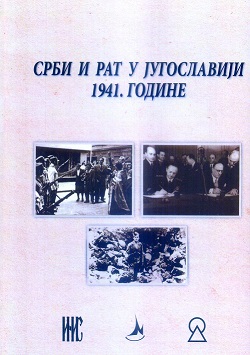Спортска политика у окупираној Србији – државна контрола и покушаји идеологизације
Sport Policy in the Occupied Serbia – State Control and Attempts at Ideologisation
Author(s): Dejan Zec
Subject(s): Governance, Political history, History of Education, State/Government and Education, WW II and following years (1940 - 1949), Sports Studies, Sociology of Politics
Published by: Institut za noviju istoriju Srbije
Keywords: sport; occupied Serbia; control; ideologisation; reorganization;
Summary/Abstract: Sports life in the occupied Serbia was under great pressure from the occupation and collaborationist authorities. Sports life resumed almost immediately after the end of military operations, mostly along the pre-war lines, but taking into account the new political and security circumstances. The German occupiers didn’t have much interest in spreading propaganda through sport, except at the very beginning of the occupation. On the other hand, the collaborationist authorities had no possibility of devoting much attention to reorganization of sport until the beginning of 1942. Meanwhile, the collaborationist press spread ideas on how Serbian sport was to be shaped. Totalitarian ideologues in sport such as Dušan Kasapinović favored etatization, militarization, utilitarization and eventually, fascization of sport on German model. In early 1942 under the guidance of educational minister Velibor Jonić more serious work in the field of reorganization of sport, above all legislative one, started. By founding the Department for Physical Education at the Ministry of Education and the State Sport Committee and by passing a decree on government control of sport, complete decision-making and acting power was laid in the hands of minister of education. Thus the clique around large sport clubs and associations was, de iure, disempowered. However, despite having had large competences and power, minister Jonić in fact did little. What could be called a success of the government sport policy was putting an end to anarchy in Belgrade football and the end of conflicts between clubs, organization of sub-league competitions, connecting sport associations with corporatist organizations such as the Serbian Union of Work or National Service for Renovation of Serbia, and probably most importantly, prevention of activities of anti-German elements (Communist, Chetnik) through clubs and propaganda of the regime’s political ideas.
Book: Срби и рат у Југославији 1941. године
- Page Range: 513-531
- Page Count: 19
- Publication Year: 2014
- Language: Serbian
- Content File-PDF

